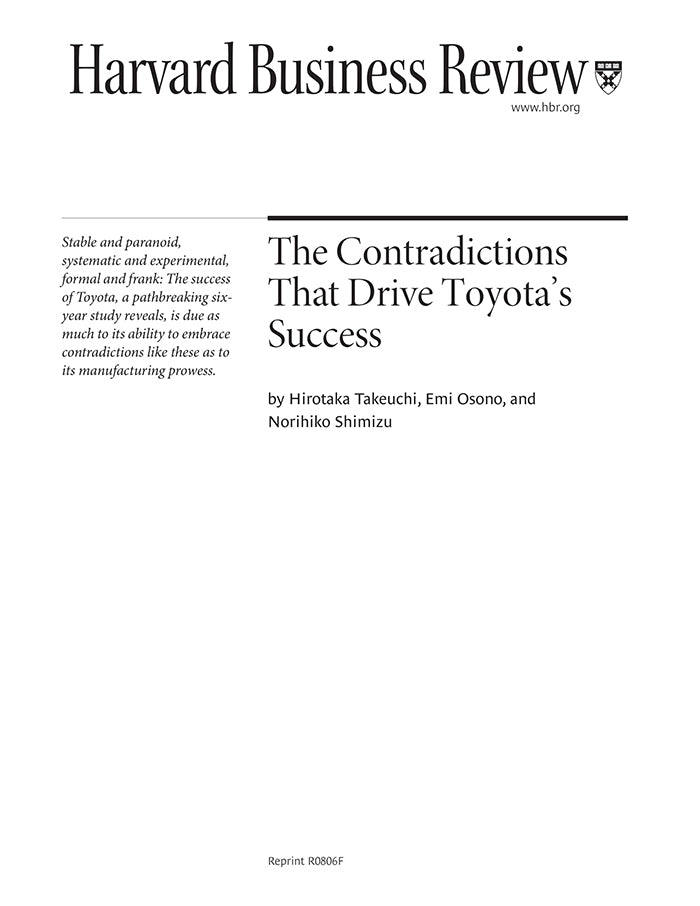The Contradictions That Drive Toyota's Success
受取状況を読み込めませんでした
Toyota has become one of the world's greatest companies only because it developed the Toyota Production System, right? Wrong, say Takeuchi, Osono, and Shimizu of Hitotsubashi University in Tokyo. Another factor, overlooked until now, is just as important to the company's success: Toyota's culture of contradictions. TPS is a "hard" innovation that allows the company to continuously improve the way it manufactures vehicles. Toyota has also mastered a "soft" innovation that relates to human resource practices and corporate culture. The company succeeds, say the authors, because it deliberately fosters contradictory viewpoints within the organization and challenges employees to find solutions by transcending differences rather than resorting to compromises. This culture generates innovative ideas that Toyota implements to pull ahead of competitors, both incrementally and radically. The authors' research reveals six forces that cause contradictions inside Toyota. Three forces of expansion lead the company to change and improve: impossible goals, local customization, and experimentation. Not surprisingly, these forces make the organization more diverse, complicate decision making, and threaten Toyota's control systems. To prevent the winds of change from blowing down the organization, the company also harnesses three forces of integration: the founders' values, "up-and-in" people management, and open communication. These forces stabilize the company, help employees make sense of the environment in which they operate, and perpetuate Toyota's values and culture. Emulating Toyota isn't about copying any one practice; it's about creating a culture. And because the company's culture of contradictions is centered on humans, who are imperfect, there will always be room for improvement.
【書誌情報】
ページ数:12ページ
サイズ:A4
商品番号:HBSP-R0806F
発行日:2008/6/1
登録日:2012/3/28


